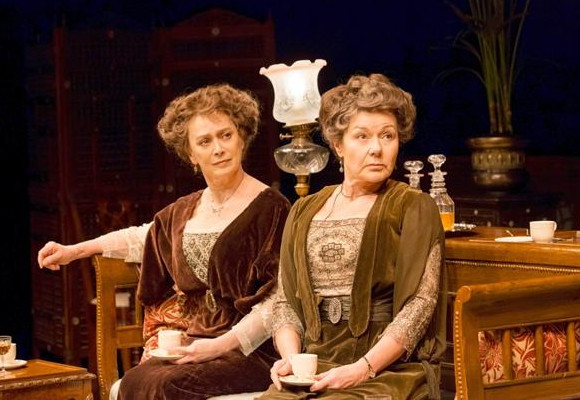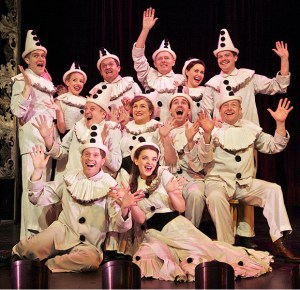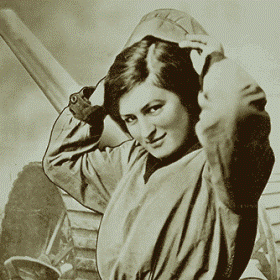Versailles (Donmar Warehouse)
Peter Gill’s new play centres on the notorious peace treaty of 1919

© Johan Persson
Peter Gill‘s beautifully written and intriguing new play is a many-faceted drawing room drama set around a few months in 1919 as the English upper classes in a Kentish village adjust to the end of both the Edwardian era and the Great War.
One of their group, the young, idealistic economist Leonard Rawlinson (Gwilym Lee) is detailed to join the British delegation at the Treaty of Versailles, deciding on the reparation to Germany and the conditions of creating the new Saar Basin and the coal allocations.
This is not as dry and dusty as it sounds. Gill’s three-act play, which he directs himself, is a study in domestic tensions and family friendships in Kent, and the second act, with no crashing of gears, a look at the political manoeuvrings behind the scenes in a Paris hotel that has been requisitioned as an office for the imperial delegation.
In this central act, we see Leonard growing increasingly concerned about the terms of the treaty being unfair and damaging to the future of the new Europe. So far, so Harley Granville Barker. But from the start of the play, Leonard is stalked by the ghost of his best friend, and lover, Gerald Chater (Tom Hughes), a strikingly handsome army officer who died in service at the front.
This relationship – and that of their respective mothers, Edith Rawlinson and Marjorie Chater, gloriously played by Francesca Annis and Barbara Flynn – carries echoes of earlier Gill plays, but the sense of loss and poignancy is given a wider political dimension in two ways: the dawning of a new age and Leonard’s growing socialist fervour; and the presentiment of our own current anxieties about the shape and dynamism of a shakily united Europe and the Middle East beyond.
Some of Leonard’s experience is based on that of John Maynard Keynes, but his background is far less bohemian. And Gill and his actors have a high old time filling in the class colours in such figures as Adrian Lukis’ family friend and neighbour ("I’m an old country Tory. Will it work, and what’s best for me?"), Tamla Kari’s spirited daughter Mabel and Simon Williams’ old-style political "Right Hon" in Paris.
Gill’s writing is both elliptical and springy, drawing neat parallels and comic energy between social alliances in Paris, where Selina Griffiths and Edward Killingback play busy background operators in the process of the treaty, and the healing of the social fabric in Kent, with plans for a stone memorial in the village.
The production is handsomely designed by Richard Hudson and gorgeously lit by Paul Pyant so that the characters have a sort of secular radiance about them, fixed as vividly in the past as Gerald’s ghost is challengingly alive in the present. In the centenary year of the Great War I suspect we’ve just been handed a superb new play that is anything but emptily commemorative.















